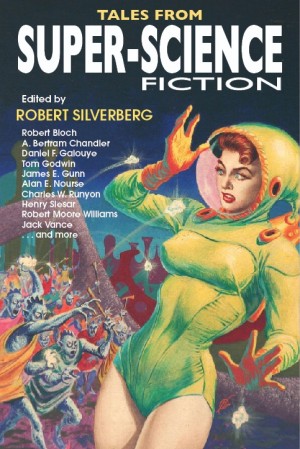The Hugo nominating deadline is March 31. And I was wondering if, on Easter weekend when the Best Fan Writer nominees are announced, there will be the usual cuckoo in the robin’s nest – an established pro novelist?
Over the past few years the category has been won by pro writers John Scalzi, Frederik Pohl, Jim C. Hines, and Tansy Rayner Roberts, with actual fans Cheryl Morgan and Claire Brialey breaking through, too.
Every time I approach this subject lots of you write to say, “Oh no, Mike, you’re crazy — pros can be fans too!”
This is such a very important ideological axiom – to fans. Those eager to win the argument that “pros can be fans too!” never seem to recognize that it isn’t fans who are stopping this from happening, rather, that they are trying to force a kind of egalitarianism on writers that never really takes, however interested or polite the writers may be while the award is on the table.
Because once everyone’s done marching around waving their hands as confetti falls from the rafters and the brass band blows like mad and the world has once again been made safe for fannish egalitarianism, nobody pays attention to the implicit message we get back from the pros that people were so hot to give a fan Hugo —
People who are building careers as writers do not want to identify their brands with anything that hints of the amateur.
And the Fan Writer Hugo that was a big deal for six months gets swept under the rug.
You look at their bios and here’s what you find.
The “Brief biography of John Scalzi” on Whatever has this to say about his awards:
Bibliography: It’s here. New York Times best seller in fiction. Awards won include the Hugo, the Locus, the Seiun and Kurd Lasswitz. Works translated into 20 languages.
Where is it?
The late Frederik Pohl had two online bios, one at his official website and the other on his blog, and neither acknowledges the Best Fan Writer Hugo. The pro site speaks generally of winning the Hugo “six times; he was the only person ever to have won the Hugo both as writer and as editor….” The blog says of his awards: “He has received six Hugos, three Nebulas and forty or fifty other awards, some of which he has given himself.”
Six Hugos. Did you know Pohl, in fact, won seven Hugos? The seventh was his Best Fan Writer Hugo.
Now at the time he was nominated Pohl was gracious about it, clearly understood the honor he was being paid, said “I couldn’t be more pleased,” and was unquestionably qualified to compete in the category. I still thought his response was pretty much along the lines of “if you insist” – rather like Robert Silverberg’s attitude toward winning the 1950 Retro Hugo for Best Fan Writer.
Silverberg also doesn’t list his Retro Hugo on his official page, but that comes as no surprise if you remember what he wrote to File 770 the time I left him off a list —
I take umbrage at your omitting Me from your list of winners of the Best Fan Writer Hugo who have also sold pro fiction. May I remind you that I was the (totally undeserved) winner of the 1950 Retro-Hugo in that category, beating out such people as [Walt] Willis and [Bob] Tucker? Of course I would not have won the award if I hadn’t had a few stories published professionally along the way. But I did get the Hugo.
That’s the thing. A Best Fan Writer Hugo added nothing to the career Pohl already had, and made Silverberg feel fans must be completely clueless about what he truly values.
Then, last year’s winner, Tansy Rayner Roberts, has a lengthy bio on her website that mentions three awards won by her fiction but is silent about her Best Fan Writer Hugo. The site’s landing page does call out her involvement in “the Hugo-nominated Galactic Suburbia podcast.” Not said is that the nomination is in the Best Fancast category.
Surprisingly, Jim C. Hines bucks the trend. His bio says right in front of God and everybody —
Jim is an active blogger about topics ranging from sexism and harassment to zombie-themed Christmas carols, and won the Hugo Award for Best Fan Writer in 2012.
Respect to you, Jim.
Invisible little men are one of science fiction’s motifs. Invisible Best Fan Writers we can do without. Let’s do something revolutionary in 2014 – vote the award to a fan.

